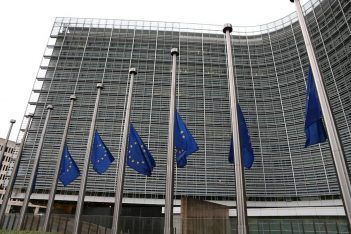Greece Still Slow to Achieve EU 2020 Recycling Target
Greece is among 14 EU member states at risk of missing the 2020 recycling target of 50 percent, according to a report published this week by the European Commission focusing of how well EU waste regulations are being implemented across Europe.
Cyprus, Bulgaria, Croatia, Estonia, Finland Hungary, Latvia, Malta, Poland, Portugal, Romania, Slovakia and Spain also appear to be lagging behind in achieving the 2020 waste management target.
In efforts to aid the aforementioned countries to meet the Union’s recycling targets and ensure compliance with waste legislation, the Commission has proposed a set of actions which include more effective separate collection towards higher quality recycling, efficient extended producers responsibility programs, economic tools such as landfill and incineration taxes, and improved data quality.
In the meantime, high-level circular economy experts will be visiting the aforementioned countries in the upcoming period to discuss opportunities and challenges with the national, regional and local authorities and the relevant stakeholders, including businesses.
Areas examined in the report, which is based on national implementation data for the 2013-2015 period, include progress made in management of municipal waste, construction and demolition waste, hazardous waste, waste electrical and electronic equipment and packaging waste.
“Europe can become the global front-runner for modern waste management and further develop its circular economy. There are still differences across Europe, but progress is necessary and possible if the respective national and local authorities implement the actions identified in this report,” said Karmenu Vella, commissioner for Environment, Maritime Affairs and Fisheries.
According to EU’s Waste Framework Directive, member states are obliged to achieve by 2020 the preparation for re-use/recycling of municipal waste by 50 percent. A revised Packaging and Packaging Waste Directive introduces a new plastic packaging recycling target of 55 percent by 2030.
The Commission said it would continue to back member states in their implementation efforts with technical assistance and funding but that it is the responsibility of national authorities to move ahead with the necessary policy reforms and step up action.
Indicatively, Europeans generated on average 480kg of municipal waste per person in 2016, 46 percent of which was recycled or composted, while a quarter was landfilled. Municipal waste represents 10 percent of the total waste generated in the EU, but it is among the most complex to manage due to diverse composition, large number of producers and fragmentation of responsibilities.







